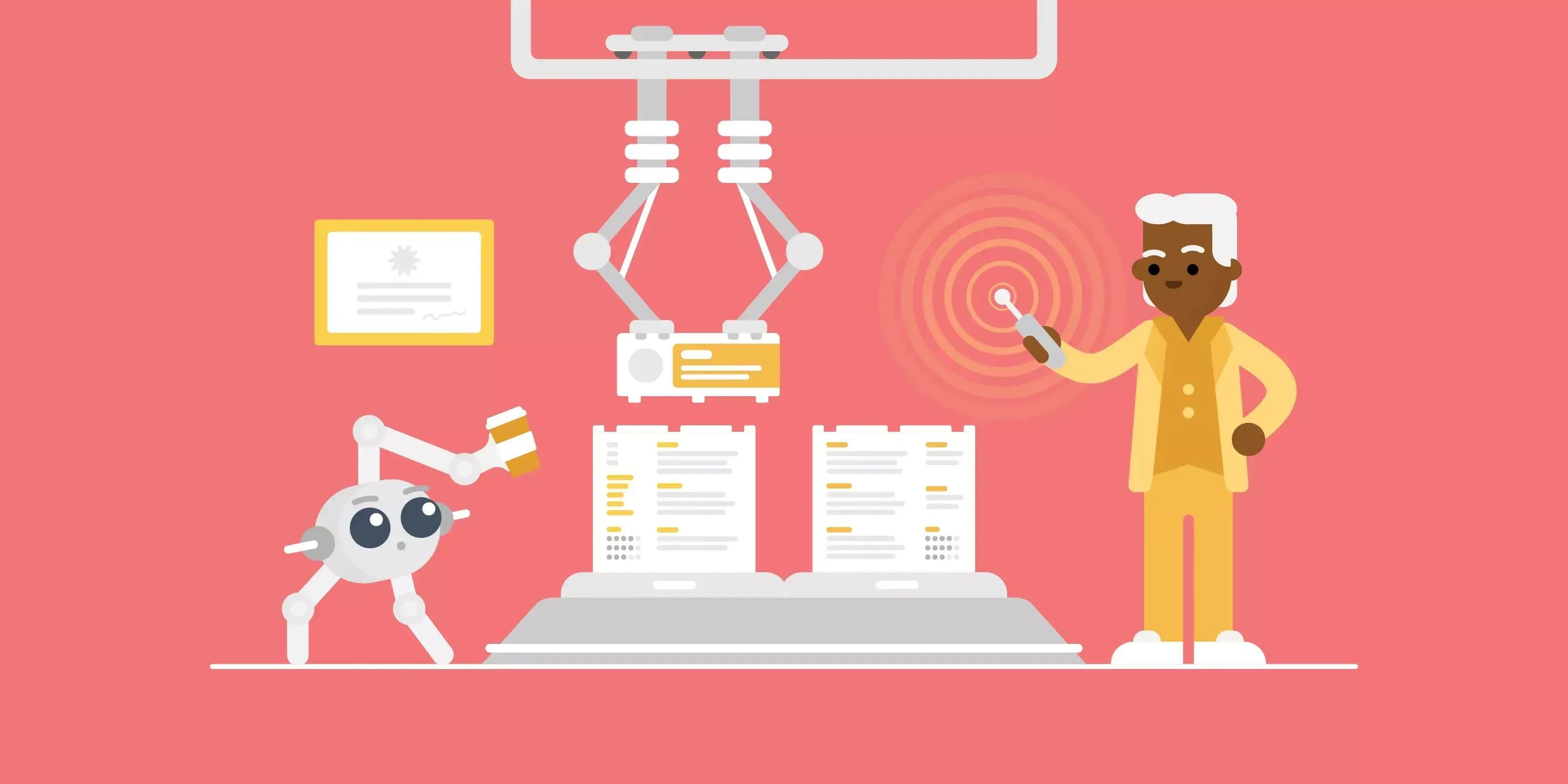10 Transferable Skills for Your Resume [Full List & Examples]
Updated on 02/24/2026

Transferable skills are a set of skills, such as communication, computer literacy, and problem-solving, that come in handy for many jobs and across several industries.
As a job-seeker, the benefits of transferable skills are numerous.
Not only do transferable skills improve your employability, but they also make it considerably easier for you to change jobs or even a career down the line.
So, all of this begs the question - what are the most in-demand transferable skills in the market? And how can you let hiring managers reviewing your resume know that you possess them?
In this article, we’ll answer those questions and more! Here’s what we’re going to cover:
- 10 Transferable Skills for Any Profession
- How to List Transferable Skills on Your Resume
- 4 Benefits of Transferable Skills
Let’s dive right in!
10 Transferable Skills for Any Profession
There are many transferable skills out there, but not all of them are going to be as helpful in your job search.
Below, we’re going to cover 10 of the most in-demand transferable skills for employers worldwide:
#1. Communication
Communication is arguably the most important transferable skill of them all.
Whether you’re a writer who needs to communicate a message to your readers, a marketing specialist who needs to communicate an advertising campaign to your client, or an office worker who must communicate with a colleague to complete a task, communication skills are vital.
Communication is a multi-faceted skill that includes several skills, such as:
- Oral and written communication
- Non-verbal communication
- Active Listening
- Presentation
- Public-speaking
- Negotiation
- Persuasion
- Discussion
#2. Management
Management skills are usually associated with management positions, but that’s not actually the case. In reality, practically any type of professional can benefit from strong management skills.
In a nutshell, management skills involve being able to effectively handle people, resources, and processes, including your time, plans, projects, and so on.
Here are some of the most in-demand management skills:
- People management
- Project management
- Time management
- Risk management
- Logistics
- Action planning
- Conflict Resolution
#3. Computer Skills
By 2016, over 70% of US jobs required medium-to-high-level digital skills.
This means that computer and technical skills are an asset to have even if your job isn’t centered around technology. As such, the more computer skills you master, the higher your chances of getting a better job.
Here are some valuable computer skills for every professional:
- Office suites (MS Office, iWork)
- Social media
- Database management
- Web (Internet savviness, basic HTML, CMS)
- Troubleshooting
- Equipment installation and configuration
- Fast Typing
#4. Leadership
Leadership includes both the ability to manage and inspire others. Managers are not always great leaders, but leaders almost always make good managers.
People who’re good at leading are emotionally intelligent, good communicators, and natural-born influencers. They can motivate others to reach their full potential and work together towards common goals.
Some soft skills related to leadership include:
- Relationship-building
- Motivation
- Creativity
- Commitment
- Strategic thinking
- Coaching
#5. Problem-Solving
Simply put, problem-solving means you’re able to identify problems successfully, find the root cause behind them, and come up with creative solutions.
Considering there isn’t a single job where you won’t face problems in one way or another, problem-solving skills are a great asset to have. When it comes to managerial, professional, and technical positions, problem-solving skills are essential.
Problem-solving is a set of skills that includes:
- Research skills
- Analytical skills
- Critical thinking
- Decision-making skills
- Attention to detail
#6. Collaboration
Collaboration entails working well with others, addressing problems collectively, and putting a group’s goal ahead of personal goals.
You don’t necessarily need to be working in a team to make good use of collaboration skills. Practically every profession out there requires that you collaborate with people to some extent and, in many cases, work with them toward a common goal.
This is exactly what makes collaboration so important.
Some important skills linked to collaboration include:
- Respect
- Conflict resolution
- Teamwork
- Curiosity
- Emotional intelligence
#7. Creativity
Creativity is typically associated with professional fields such as arts and crafts, architecture, or marketing.
In reality, though, creativity is essentially about how you view situations and solve problems. Being creative means thinking outside of the box and approaching tasks and challenges inventively.
This probably explains why the World Economic Forum predicted that, by 2020, creativity would be among the top three skills required from workers.
#8. Interpersonal Skills
Interpersonal skills refer to how well you can understand and get along with other people.
In addition to people-related roles, interpersonal skills also come in handy for individual-focused positions.
Take, for example, writers. To be a really good writer, you need to be able to:
- Understand and communicate with your audience
- Collaborate with your publishing team
- Understand what people are like
Just like most other transferable skills on our list, interpersonal skills are multi-faceted. Here is what they consist of:
- Teamwork
- Communication
- Networking
- Empathy
- Openness
#9. Organization
Organizational skills are a set of soft skills that help you keep track of information, materials, and even your time in such a way that you can tackle short and long-term tasks efficiently.
Organizational skills are among the top skills recruiters are looking for in 2025, primarily because they help employees be more productive, save companies time and money, and facilitate a more positive work environment.
Here is what organizational skills consist of:
- Physical organization
- Planning
- Scheduling
- Prioritization
- Goal setting
#10. Adaptability
Adaptability means being able to adjust to change.
No matter where you work, change is inevitable, whether it’s a change in management, work duties, responsibilities, or even schedule.
If you’re adaptable, you’re more likely to face challenges, unfamiliar environments, or changes in your personal and professional life with a positive attitude.
Most importantly, you’re also more likely to tackle such situations successfully.
How to List Transferable Skills on Your Resume
You may have plenty of transferable skills to land you the job of your dreams, but unless you know how to add them to your resume, the hiring manager won’t be able to tell.
Below, we’ll walk you through how to add your transferable skills to your resume the right way:
#1. Identify Your Transferable Skills
A national survey of displaced workers found that 57% of them can’t identify their transferable skills with a high degree of confidence.
If you feel the same way, here’s what you can do.
First things first, you should think about what your last role and the role you’re seeking to get hired for have in common.
Let’s assume, for example, that you’re going for a career change from sales to copywriting.
The two roles both require you to possess the following skills:
- Written Communication - Both roles involve communication via text. A salesperson needs to send cold emails, while a copywriter has to write newsletter emails.
- Persuasion - A copywriter needs to create copy that drives sales, while a salesperson needs to be persuasive in person.
- Creativity - Both roles require the person to be creative in their tasks.
- Computer skills - Both jobs require some degree of computer knowledge. For a salesperson, that’s using Customer Management Software, while for a copywriter, that’s publishing content online.
Pretty simple, right?
Alternatively, you can also review the job description of the job you’re applying for and identify what kind of skills are required for the role.
Finally, once you’ve identified all your top transferable skills, all you need to do is add them to your Skills section and you’re good to go!

#2. Include Your Top Skills In the Resume Summary
The resume summary is a short (three or four sentences long) paragraph positioned at the top of your resume that includes:
- Your profession and years of experience
- Your top skills (i.e. hard skills or soft skills)
- One or two noteworthy achievements
And it looks something like this:

Done right, your resume summary should catch the hiring manager’s attention, show them you’re a relevant candidate for the role, and get them to read the rest of your resume in more detail.
So, the resume summary is your first chance to describe your transferable skills.
Here is an example of how you can include transferable skills in your resume summary:
Example:
- Creative and communicative customer support agent with over 6 years of experience seeking a junior-level role in Sales. Skilled in collaborating with others, managing my time effectively, and adapting to different situations. Improved customer retention by over 20% in my previous role by being more empathetic, open, and communicative with customers.
#3. Back Them Up In Your Professional Experience Section
Last - but not least - you should use your work experience section to prove that you actually possess all the transferable skills you mentioned under your soft skills and in your resume summary.
After all, anyone can claim they have the transferable skills for the role - not everyone can prove it.
To convince the hiring manager that you possess the transferable skills you listed in your resume, follow our tips below:
- Focus on your achievements instead of your responsibilities. More often than not, hiring managers know exactly what your responsibilities consisted of in previous jobs. What they want to know is how you made a positive impact with your achievements. So, once you’ve decided which transferable skills to include in your resume, write down some achievements from your previous roles that can help back them up.
- Make your achievements quantifiable. Speaking of achievements, you want to make them as quantifiable as possible. After all, data and numbers are always much more efficient in convincing hiring managers that your achievements are legit but that they can also bring a lot to the table.
- Use action verbs and power words. Using the same words (e.g. accomplished) will make your resume look dry. Instead, check our article on the best action verbs and power words to make your achievements more impressive.
Remember the sales to copywriting career change example we mentioned above?
Here is how the candidate would describe their transferable skills for the copywriting role:
Example:
- Created and presented a pitch deck that secured a $500,000 deal for company X.
- Boosted sales for the most underperforming product by 40% by developing educational material for prospects.
- Created and edited sales materials, scripts, and technical documents for accuracy and consistency.
The example above effectively highlights and proves the candidate possesses transferable skills like communication, creativity, presentation, and persuasion, all of which are essential for a role in sales.
4 Benefits of Transferable Skills
You’re probably wondering what exactly is it that makes transferable skills so important for employees and employers alike.
Here are their most noteworthy benefits:
- Increased employability. A 2018 Mckinsey & Company report found that the need for transferable skills will increase sharply in the next decade, while the need for manual and repetitive tasks will decrease.
- Guaranteed flexibility. Employers can depend on employees who possess a variety of transferable skills to perform well in various situations and face different challenges. As for you, possessing transferable skills means that changing jobs or even careers will be much easier for you.
- Career growth. You’ll be more likely to get promoted if you possess some of the transferable skills we’ve mentioned above.
- More diverse opportunities. 1 in 5 workers changed their line of work entirely over the past year, with half of those changes being permanent. With strong transferable skills, you can make a career change (if you choose to) without being worried about setbacks.
Key Takeaways
And that’s a wrap! By now, you should know everything there is to know about transferable skills and how to leverage them to advance your career.
Before you go and put our tips into practice, let’s go over the main things that we covered in this article:
- Transferable skills refer to a set of skills that you can transfer from one job to another and from one industry to another.
- Out of the many transferable skills out there, hiring managers are particularly on the lookout for creativity, communication, adaptability, problem-solving, and organizational skills.
- How you add transferable skills to your resume matters. Make sure to include only the ones that are relevant to the position you’re applying for and that you back them up with achievements in your work history.
- Some of the top benefits of transferable skills include higher employability, increased flexibility, and more career opportunities.



